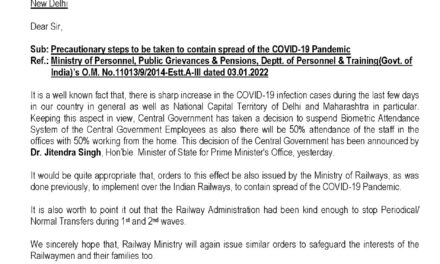The heart of the device is the compressed air container to work the Ambu bag with air without any moving parts like servo motor or piston or link mechanism.
Within a week of receiving instructions from the government about “exploring the possibility” of making ventilators, the Railways’ Rail Coach Factory (RCF) in Kapurthala on Saturday came out with a prototype that has an original design and will cost a fraction of what regular ventilators cost.
The first such breakthrough by a production unit, the prototype named Jeevan will now go for final testing at the Indian Council of Medical Research (ICMR) before being put to production to aid the country’s fight against COVID-19, the Railway Ministry decided Saturday. In-house medical professionals of the production unit have tested the unit and given it a go-ahead.
“The cost will be under Rs 10,000 without the compressor. Overall, the cost will still be a fraction of what regular ventilators available in the market cost,” Ravinder Gupta, general manager of the RCF and also the chief designer of the machine, told The Sunday Express. Gupta is a 1984-batch Mechanical Engineering Officer of the Railways.
“It can be used as an emergency ventilator. Production is easy and can be done with locally sourced components,” he said.
The heart of the device is the compressed air container to work the Ambu bag with air without any moving parts like servo motor or piston or link mechanism. “It is very silent. And it is not reverse engineering. This is an original design from scratch,” he said.
Behind the machine is a team of 10 railway engineers and a group of medical professionals. The intellectual property rights relating to the ventilator belong to the RCF.
It has a microprocessor-based controller and the circuit has been designed by the RCF team.
One of India’s premier production units that manufactures the German-design Linke Hoffman Busche coaches, RCF first looked within to source materials to start with. So the body is taken from a coach, the argon flow meter is from a laser welding machine and the compressor is from an air cooler. “If you open the box, it’s a complex machine, but all under Rs 10,000,” Gupta said.
The RCF needed to source two parts from vendors in Delhi and Noida. It sourced the valve from the Indian arm of Japanese engineering firm SMC Corporation based in Noida and the Contribution Controller from A Paul based in Okhla. Amid the lockdown, RCF used “emergency transit” services to get the two components by road and train.
The designers and engineers are preparing the technical documents for perusal of the ICMR. By next week, the prototype will be sent there for testing as per instructions of the Railway Board.






Trackbacks/Pingbacks